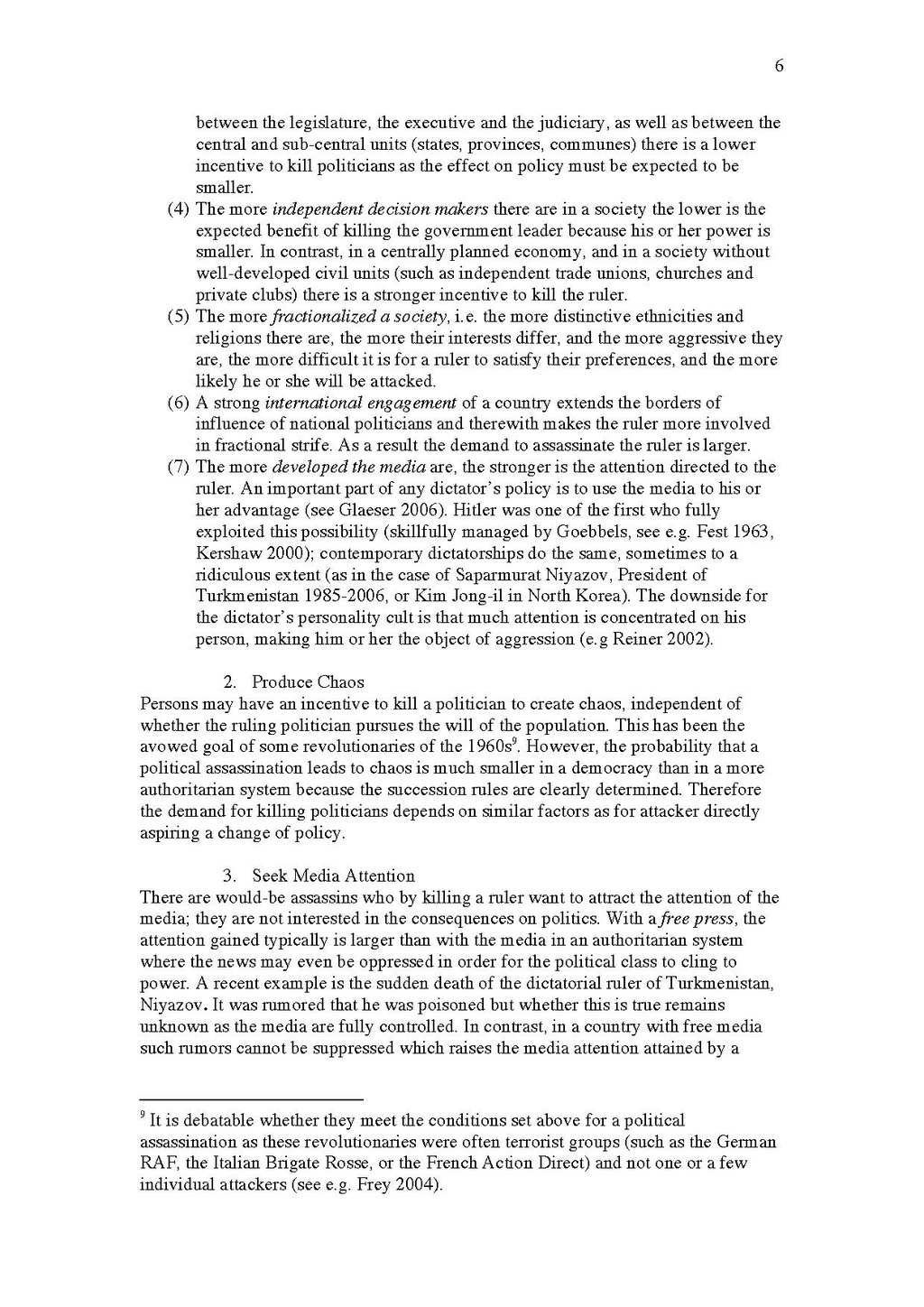between the legislature, the executive and the judiciary, as well as between the central and sub-central units (states, provinces, communes) there is a lower incentive to kill politicians as the effect on policy must be expected to be
smaller. (4) The more independent decision makers there are in a society the lower is the
expected benefit of killing the government leader because his or her power is smaller. In contrast, in a centrally planned economy, and in a society without well-developed civil units (such as independent trade unions, churches and
private clubs) there is a stronger incentive to kill the ruler. (5) The more fractionalized a society, i.e. the more distinctive ethnicities and
religions there are, the more their interests differ, and the more aggressive they are, the more difficult it is for a ruler to satisfy their preferences, and the more
likely he or she will be attacked. (6) A strong international engagement of a country extends the borders of
influence of national politicians and therewith makes the ruler more involved
in fractional strife. As a result the demand to assassinate the ruler is larger. (7) The more developed the media are, the stronger is the attention directed to the
ruler. An important part of any dictator's policy is to use the media to his or her advantage (see Glaeser 2006). Hitler was one of the first who fully exploited this possibility (skillfully managed by Goebbels, see e.g. Fest 1963, Kershaw 2000); contemporary dictatorships do the same, sometimes to a ridiculous extent (as in the case of Saparmurat Niyazov, President of Turkmenistan 1985-2006, or Kim Jong-il in North Korea). The downside for the dictator's personality cult is that much attention is concentrated on his person, making him or her the object of aggression (e.g Reiner 2002).
2. Produce Chaos Persons may have an incentive to kill a politician to create chaos, independent of whether the ruling politician pursues the will of the population. This has been the avowed goal of some revolutionaries of the 1960s'. However, the probability that a political assassination leads to chaos is much smaller in a democracy than in a more authoritarian system because the succession rules are clearly determined. Therefore the demand for killing politicians depends on similar factors as for attacker directly aspiring a change of policy.
3. Seek Media Attention There are would-be assassins who by killing a ruler want to attract the attention of the media; they are not interested in the consequences on politics. With a free press, the attention gained typically is larger than with the media in an authoritarian system where the news may even be oppressed in order for the political class to cling to power. A recent example is the sudden death of the dictatorial ruler of Turkmenistan, Niyazov. It was rumored that he was poisoned but whether this is true remains unknown as the media are fully controlled. In contrast, in a country with free media such rumors cannot be suppressed which raises the media attention attained by a
'It is debatable whether they meet the conditions set above for a political assassination as these revolutionaries were often terrorist groups (such as the German RAF, the Italian Brigate Rosse, or the French Action Direct) and not one or a few individual attackers (see e.g. Frey 2004).
